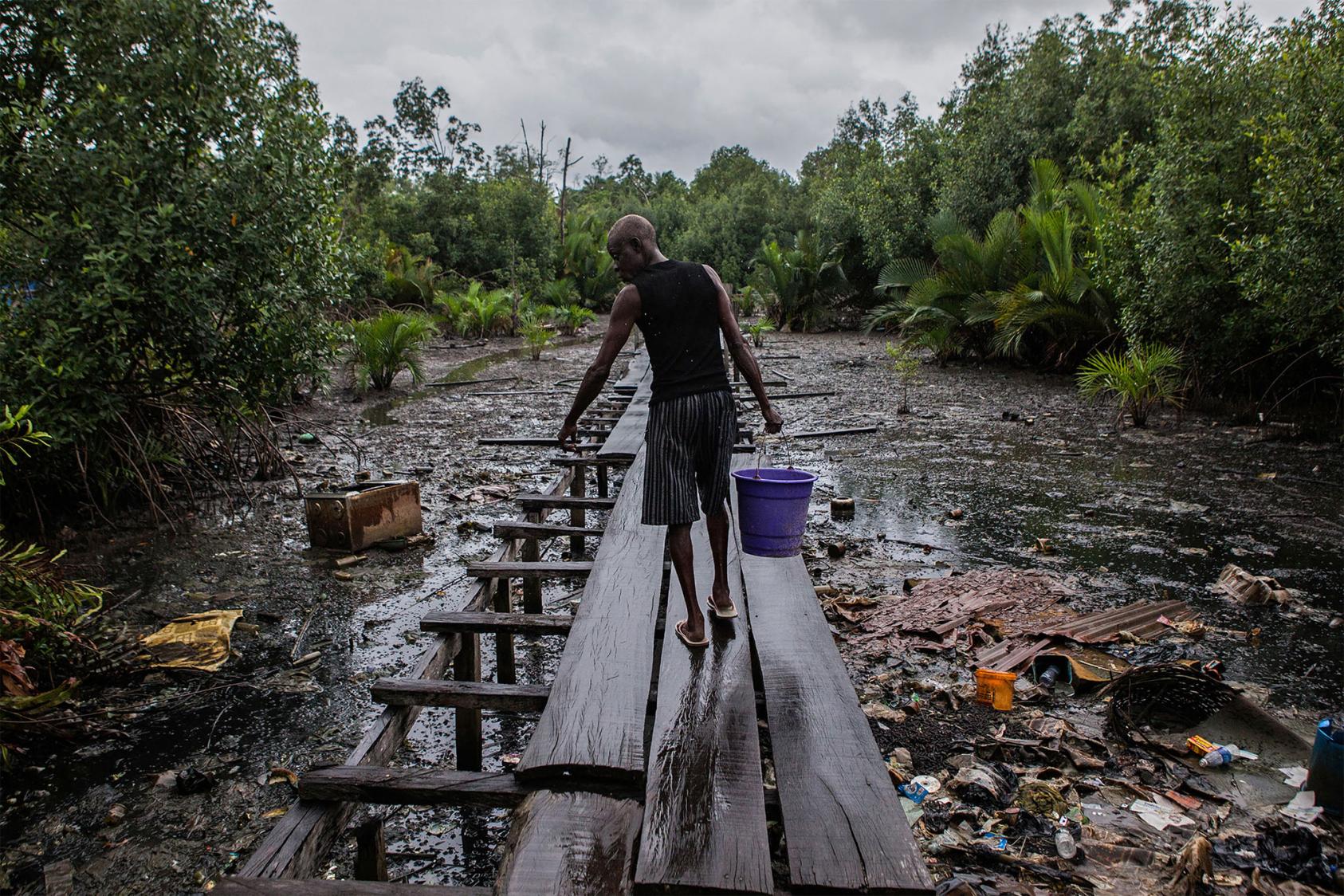The process of decarbonization—that is, the replacement of fossil fuels with non-hydrocarbon-based forms of energy—is essential for meeting the climate goals articulated by international agreements. But in fragile, oil-dependent nations, where hydrocarbon revenues are often a key means of political control, decarbonization can spell the difference between peace and conflict. This report examines the consequences of the sudden loss of oil revenues for fragile, conflict-affected states and provides recommendations for policymakers on how to manage future decarbonization peacefully.

Summary
Decarbonization—the replacement of fossil fuels with non-hydrocarbon-based forms of energy—has vastly different implications in developed economies and fragile states. Through case studies of recent “traumatic decarbonization”—a rapid, unplanned reduction in hydrocarbon revenues—this report assesses how fragile, conflict-affected oil-producing countries will fare as the world transitions to clean energy and they incur losses to the revenues that sustain their current economies and political systems.
In such fragile states, where governance institutions are weak, politics centers on transactional bargains among rival elites rather than functioning under the rule of law. In such “political marketplaces,” elites use material rewards to sustain political bargains and peace settlements, alongside coercion.
In a significant number of poorer and conflict-affected countries with hydrocarbon reserves, oil and gas revenue serves as a primary source of finance for players in the political marketplace, so that entire systems of government are constructed around it. The global transition away from fossil fuels threatens to eliminate such political finance and jeopardizes elite deals in precisely those contexts where governments are least prepared to manage the transition. Progress toward peace, stability, democracy, and development was already uncertain in these countries, and it is further jeopardized by the political disruptions associated with traumatic decarbonization.
Policymakers engaged in conflict resolution and environmental policy formulation currently work in silos; to avoid harmful unintended consequences associated with traumatic decarbonization in fragile states, they will need to find ways of working together and with other partners such as international organizations and civil society organizations in the relevant countries. Responding to decarbonization will require improved analyses and proactive policy responses that move away from viewing environmental challenges solely through the lens of security. Instead, sustained diplomacy will be required to redesign both existing climate commitments and peace processes as the political economies of these decarbonizing nations change over time.
About the Report
Decarbonization is essential to address climate change, but evidence in this report shows that rapid, unplanned loss of carbon revenues imperils democratization and peace in fragile, oil-producing states. The report presents a framework for analysis and offers options for policy response. Research for the report was supported in part by a grant from the United States Institute of Peace; additional funding was provided by the World Peace Foundation at the Fletcher School of Law and Diplomacy at Tufts University.
About the Authors
Aditya Sarkar is a PhD candidate at the Fletcher School at Tufts University. Benjamin Spatz is a senior lecturer at the University of Cape Town’s Graduate School of Business. Alex de Waal is a professor at the Fletcher School and executive director of the World Peace Foundation (where Sarkar and Spatz are research fellows). Jared Miller and Tarun Gopalakrishnan are PhD candidates at the Fletcher School.